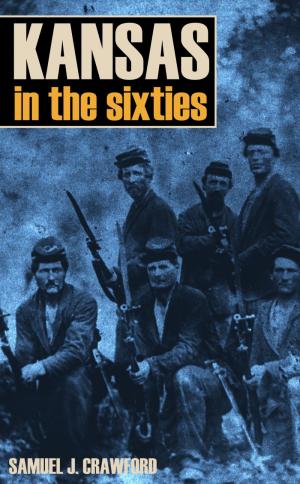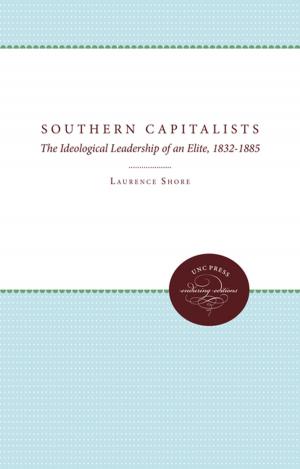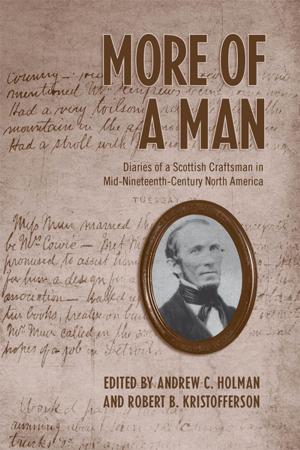The Sword of the Lord: The Roots of Fundamentalism in an American Family
Nonfiction, Religion & Spirituality, Reference, History, Americas| Author: | Andrew Himes | ISBN: | 2940011134586 |
| Publisher: | Andrew Himes | Publication: | November 10, 2010 |
| Imprint: | Smashwords Edition | Language: | English |
| Author: | Andrew Himes |
| ISBN: | 2940011134586 |
| Publisher: | Andrew Himes |
| Publication: | November 10, 2010 |
| Imprint: | Smashwords Edition |
| Language: | English |
Andrew Himes: My core motivation for researching and writing the book was to understand the roots of fundamentalism -- and how my own life fit into that story. So I started with my earliest ancestor whose name I knew, a farmer named John Rice who fought in the Revolutionary War, and then learned and retold the larger story of fundamentalism through the lens of my family's experience and my own life. So every chapter begins with an anecdote from my life, and then steps through over two centuries of history.
My grandfather was John R. Rice, founder of the Sword of the Lord newspaper, evangelist, author of scores of books, and mentor to thousands of younger preachers from Billy Graham to Jerry Falwell. Several generations of my family have embodied the history of fundamentalism through the American Revolution, the struggle over slavery and the Civil War, the South in the wake of that war and the First World War, and throughout the 20th century.
As a youthful family rebel, I struggled to understand both the positive impulse that gave birth to fundamentalism as well as its darker side as I was growing up in my prominent Southern fundamentalist family and later as I tried to find my own way. I believe that understanding fundamentalism is essential for understanding America and ourselves.
Fundamentalism has its roots in the Scots-Irish who migrated to America in the 18th century, bringing their stern Presbyterianism and deep love of individual freedom to shape the new republic as they settled throughout the American South.
Fundamentalism emerged as a distinct and full-fledged movement following World War I, just as my granddad, John R. Rice, was answering his own call to Christian ministry. A crucial turning point was the Scopes Monkey Trial in 1925, an apparent defeat for the movement which had the effect of concentrating leadership in the hands of Southern conservatives and driving it “underground” and out of sight for most Americans.
In 1935, John R. Rice founded the influential Sword of the Lord newspaper, and over the next four decades became a significant national leader of fundamentalists through the many books he authored, the conferences he organized, and the thousands of younger preachers whom he mentored, including Billy Graham, Bob Jones, Jr., W.A. Criswell, and Jerry Falwell.
Over those decades, the fundamentalist movement built new institutions (networks, schools, publishers, and seminaries), experienced rapid growth and geographical re-distribution, and jettisoned its debilitating Southern burden of racist theology. By the 1970s, my grandfather had helped prepare the Christian fundamentalist movement to give birth to the Religious Right.
In the 21st cwntury, a new generation of evangelicals is reshaping what it means to be a follower of Jesus. Evangelicals are re-exploring the “fundamentals” of the faith in a post-fundamentalist world. We are remembering how Jesus said that all of his teachings could be encapsulated in a single directive: to love God and to love your neighbor as yourself.
Andrew Himes: My core motivation for researching and writing the book was to understand the roots of fundamentalism -- and how my own life fit into that story. So I started with my earliest ancestor whose name I knew, a farmer named John Rice who fought in the Revolutionary War, and then learned and retold the larger story of fundamentalism through the lens of my family's experience and my own life. So every chapter begins with an anecdote from my life, and then steps through over two centuries of history.
My grandfather was John R. Rice, founder of the Sword of the Lord newspaper, evangelist, author of scores of books, and mentor to thousands of younger preachers from Billy Graham to Jerry Falwell. Several generations of my family have embodied the history of fundamentalism through the American Revolution, the struggle over slavery and the Civil War, the South in the wake of that war and the First World War, and throughout the 20th century.
As a youthful family rebel, I struggled to understand both the positive impulse that gave birth to fundamentalism as well as its darker side as I was growing up in my prominent Southern fundamentalist family and later as I tried to find my own way. I believe that understanding fundamentalism is essential for understanding America and ourselves.
Fundamentalism has its roots in the Scots-Irish who migrated to America in the 18th century, bringing their stern Presbyterianism and deep love of individual freedom to shape the new republic as they settled throughout the American South.
Fundamentalism emerged as a distinct and full-fledged movement following World War I, just as my granddad, John R. Rice, was answering his own call to Christian ministry. A crucial turning point was the Scopes Monkey Trial in 1925, an apparent defeat for the movement which had the effect of concentrating leadership in the hands of Southern conservatives and driving it “underground” and out of sight for most Americans.
In 1935, John R. Rice founded the influential Sword of the Lord newspaper, and over the next four decades became a significant national leader of fundamentalists through the many books he authored, the conferences he organized, and the thousands of younger preachers whom he mentored, including Billy Graham, Bob Jones, Jr., W.A. Criswell, and Jerry Falwell.
Over those decades, the fundamentalist movement built new institutions (networks, schools, publishers, and seminaries), experienced rapid growth and geographical re-distribution, and jettisoned its debilitating Southern burden of racist theology. By the 1970s, my grandfather had helped prepare the Christian fundamentalist movement to give birth to the Religious Right.
In the 21st cwntury, a new generation of evangelicals is reshaping what it means to be a follower of Jesus. Evangelicals are re-exploring the “fundamentals” of the faith in a post-fundamentalist world. We are remembering how Jesus said that all of his teachings could be encapsulated in a single directive: to love God and to love your neighbor as yourself.















